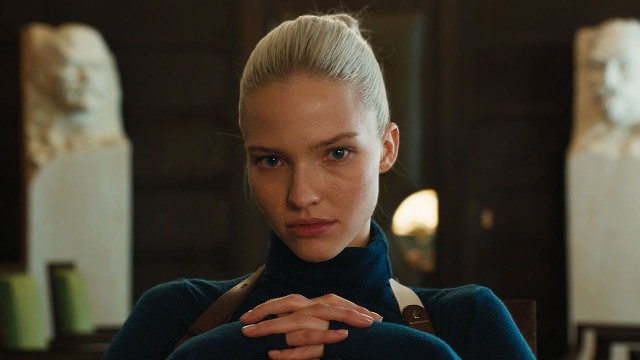Incluvie Foundation Gala - Learn More
'Anna': Who is She Really?
There were too many irrelevant parts that could have been shortened, and too many characters that didn't advance the plot. Either way, some things didn't add up. This was just another played out plot with little, if any, originality in it. By the end of the film, I wasn't happy that she finally got her freedom, I was happy that it was finally over.
Anna (2019)



Sadly, not much can be said for Luc Besson’s film Anna, starring Sasha Luss. She had multiple men falling at her feet, dead and alive. She was a badass as much as she was a seductress throughout this film. If anyone can put a face on the femme fatale, it’s Sasha Luss. She gave a good performance for the majority of the film, but in some scenes the acting was sub par. The same can be said for the plot. It wasn’t a bad film, but it wasn’t necessarily good either. I appreciated the twists and turns that this film presented towards the end–unfortunately, it was a little too late. The film started off extremely boring, even when the writers tried to spice things up a little bit. It just wasn’t the right amount of oomph that this film needed to make it a success.
Sasha Luss was the beautiful, lethal assassin who just “wanted to be free.” Where have we heard that before? Oh, yeah–in almost all assassin action thrillers. While I knew this film was going to be a played out storyline almost immediately, I still had hope. Much to my disappointment, that hope withered away not far into the movie. It wasn’t until Anna shot her first victim that my interest peaked–but not by much. By that point, I was already hoping for the end.

While watching Anna, I mostly felt bad for Maud (Lera Abova). She was a casualty–a pawn to protect Anna’s cover. She played an excellent role in being the dutiful girlfriend, trying to be supportive and help in any way that she could. It was devastating to see both of Anna’s lovers in the same room, while agent Lenny Miller (Cillian Murphy) hammered the poor, oblivious girl with questions. It was clear that Miller was angry at Anna, so he took out his anger at the only other person he could. Anna had both men and women doing her bidding, and neither realized it until it was too late. Maud was as beautiful as she was innocent. When she was crying, it made me wonder if I had Anna pegged wrong the entire film. Then I thought: no, Maud was there loving her, and she was plotting her disappearance. I had her right. Anna was manipulative and conniving, but who could blame her? After all, she did get what she wanted in the end.

Anna was betrayed, tricked, set up, and lonely, but in the end she ensured her freedom. Whether she had a game plan set up from the beginning of the film or it came to her throughout was unclear, which makes the audience see her as a beautiful stranger. I did not connect with Anna or sympathize with her. She was an avatar playing a part. She went from playing a girl who “needed help,” to a killing machine, to a seductress, making her unidentifiable to the audience. She had few moments where her “true self” shined through, but it’s hard to pin point if these were even real moments. I wasn’t sure if she even loved Miller, Maud, or Alex Tchenkov (Luke Evans) at all.
Some parts of the film did not make sense and some ends were not tied. I’m not sure if this was because of the intent to have a second film or because, like the plot, it was sloppily written. There were too many irrelevant parts that could have been shortened, and too many characters that didn’t advance the plot. Either way, some things didn’t add up. This was just another played out plot with little, if any, originality in it. By the end of the film, I wasn’t happy that she finally got her freedom, I was happy that it was finally over.
More to explore
By Same Author
Related lists created by the same author
By Cluvie Category
Related diversity category
‘Thor: Love and Thunder’ Review: Not Marvel’s Gayest Movie Ever
Taika Waititi and the cast of Thor: Love and Thunder have been hyping up the gayness of this movie, and while there are queer characters, it's not quite the representation we were hoping for.




